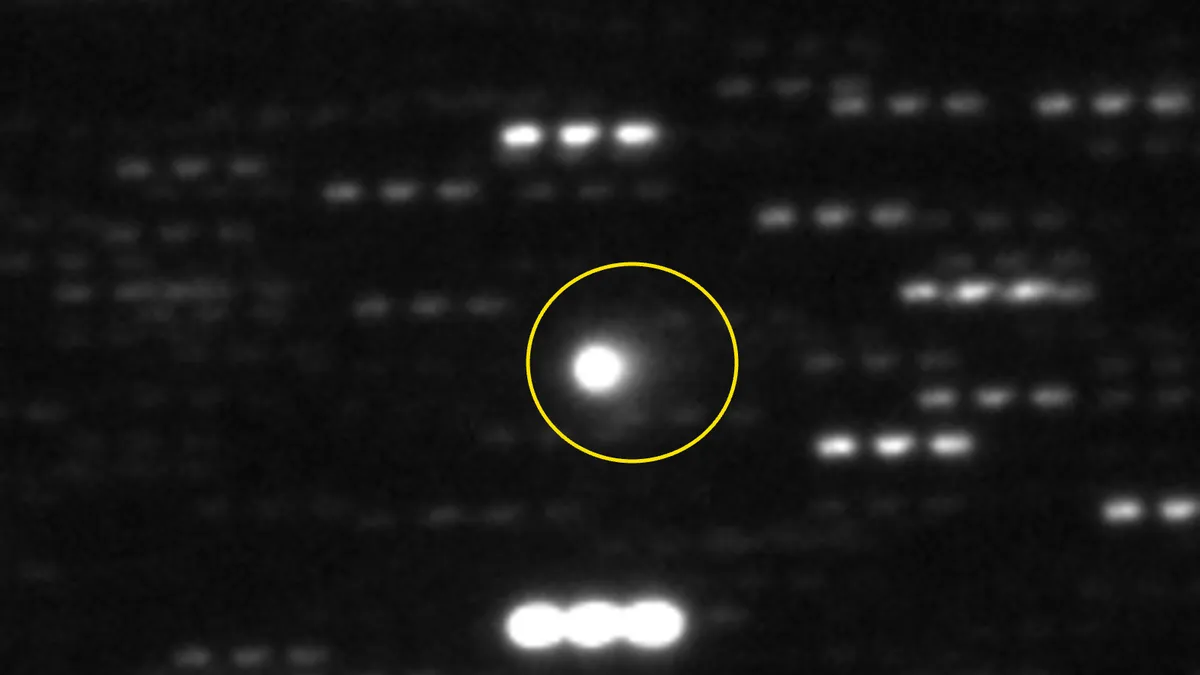
3I/ATLAS, an alien comet measuring approximately 7 miles (11.2 kilometers) in width, has recently gained attention as the largest interstellar object ever detected. Newly released images from the Vera C. Rubin Observatory showcase this monumental discovery, emphasizing the capabilities of this advanced telescope in identifying future interstellar visitors. Researchers assert that these detailed photographs were taken prior to the official discovery, highlighting the observatory's significance in the realm of astronomical exploration.
Discovered on July 1, 2023, 3I/ATLAS is traveling towards the sun at an astonishing speed of over 130,000 mph (210,000 km/h). Just a day later, NASA confirmed it as the third known interstellar object (ISO), which is essentially a remnant from another star system moving through our solar system. Initial assessments quickly indicated that 3I/ATLAS is a comet, and computer simulations suggest it could be up to 3 billion years older than Earth, potentially making it the oldest comet ever observed.
Until recently, scientists could only ascertain that the comet's coma—the cloud of ice, dust, and gas enveloping it—extended up to 15 miles (24 km) across. However, the actual size of its icy nucleus remained uncertain. In a groundbreaking study uploaded to the preprint server arXiv on July 17, a team of over 200 researchers utilized images from the Vera C. Rubin Observatory to estimate the size of the nucleus. Captured on June 21, these images suggest a nucleus radius of approximately 3.5 miles, translating to a diameter of about 7 miles, with a margin of error of around 0.4 miles (0.7 km).
To date, only two other interstellar objects have been confirmed: 1I/'Oumuamua, an asteroid discovered in 2017, and 2I/Borisov, a comet identified in 2019. While 'Oumuamua is estimated to be around 0.2 miles (0.4 km) wide, its precise shape remains a mystery. In contrast, Comet Borisov features a nucleus roughly 0.6 miles (1 km) wide. This places 3I/ATLAS comfortably as the largest ISO ever encountered.
The recent study has also provided valuable insights into the comet's coma, revealing substantial amounts of dust and water ice surrounding its nucleus. These findings reinforce the notion that 3I/ATLAS is a natural comet, countering speculative theories suggesting it could be a probe from an advanced alien civilization.
Located in the Andes of Chile, the Vera C. Rubin Observatory is equipped with the world’s largest digital camera and is set to embark on a 10-year mission known as the Legacy Survey of Space and Time (LSST). The observatory’s initial images, released in June, unveiled over 10 million galaxies in unprecedented detail and have already led to the discovery of thousands of new asteroids.
The ability of the Vera C. Rubin Observatory to accurately determine the size of 3I/ATLAS just ten days before its official discovery serves as a testament to the observatory's future capabilities. As it becomes fully operational later this year, it promises to significantly enhance our understanding of interstellar objects and the cosmos.